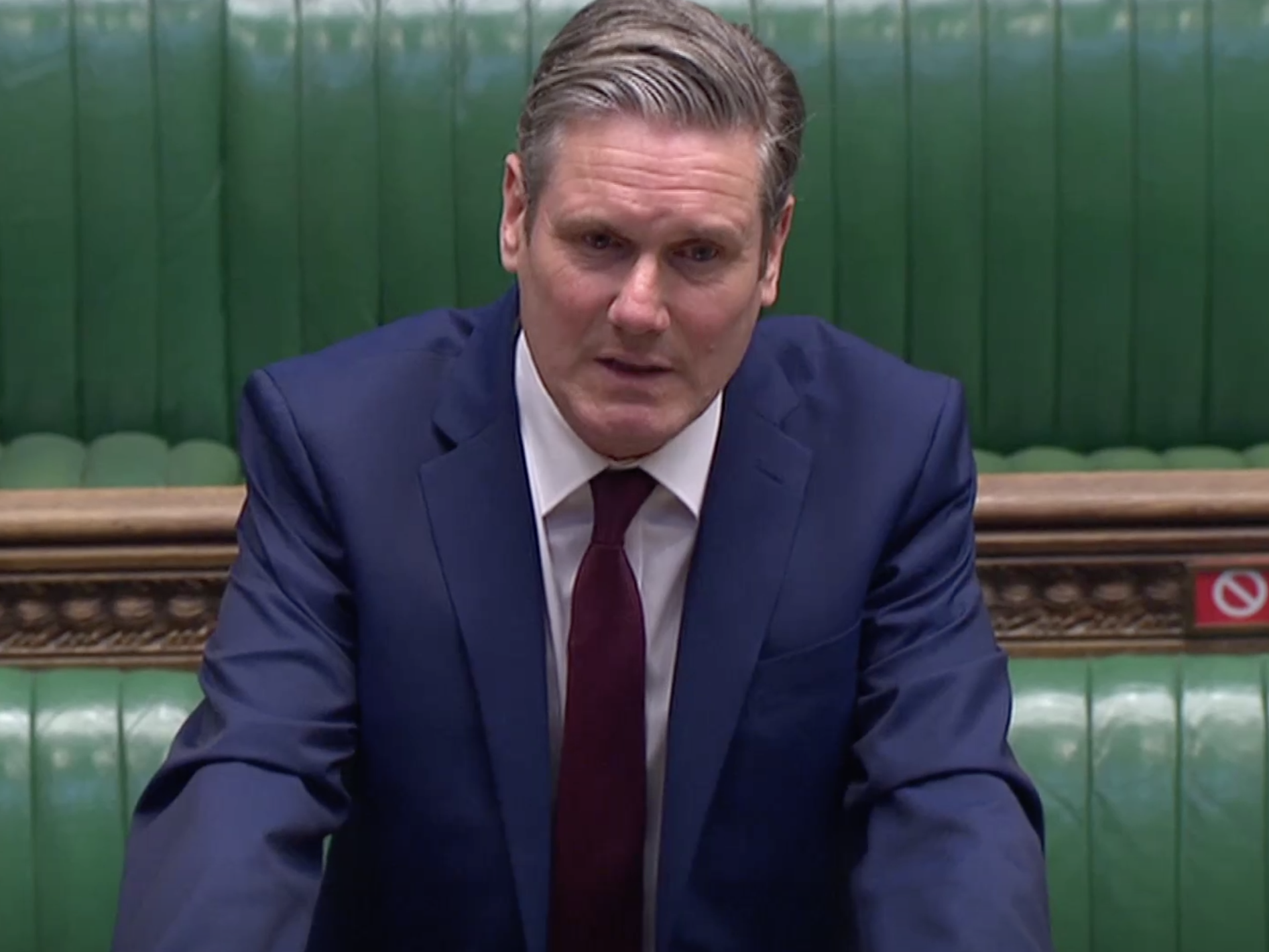Keir Starmer’s PMQs debut? Just dull enough to be a danger for the government
Parliament is very different under social distancing rules – but something else has changed: the leader of the opposition has made the Conservatives nervous, writes John Rentoul


When Jeremy Corbyn became leader of the opposition, David Cameron was astute enough to be worried that he would not feel under pressure, and that the quality of his government’s decision-making would suffer.
Just before he stood down a year later, he said so publicly: “It might be in my party’s interest for him to sit there – he’s not in the national interest. I would say: for heaven’s sake, man, go!”
Well, he’s finally gone – although he was still in the House of Commons chamber on the backbenches during today’s Prime Minister’s Questions. And the difference was marked.
Obviously, the session was very different from the usual anyway, because of the social distancing rules, which meant few MPs were in the chamber and the noise level was that of an exam room.
But even taking the change of format into account, it was obvious that Dominic Raab, deputising for the prime minister, could feel the threat emanating from the other side of the despatch box. The foreign secretary stayed calm and quietly spoken, but as soon as Keir Starmer had finished, his body language relaxed. He turned to left and right, and even smiled happily at some subsequent questions.
But while the new leader of the opposition was on his feet, Raab was as tense as tight-wound clockwork. Starmer announced his arrival stealthily, thanking the speaker for arranging for the Commons to meet under the new rules. “It is important that we have this scrutiny,” he said.
He asked about testing. Was the government really going to get up to 100,000 tests a day in eight days’ time? Raab relaxed one notch, knowing that Matt Hancock, the health secretary, would be carrying the can for that one. He “corrected” Starmer’s figures, pointing out that the capacity for tests was up to 40,000 a day.
Starmer responded spikily, saying he “didn’t need correcting” because he was talking about the number of tests actually being carried out. He was only on question two and already we were into the cut and thrust of actual debate, where each person listens to the argument of the other side and responds to it immediately.
This sort of thing might catch on, and there might even be a large TV audience for it – although, to be honest, Starmer has a dull speaking style and one of his questions was incredibly long to no good effect. He embarrassed Raab, who had a figure for the number of NHS staff who had died, but not for the number of care workers.
Corbyn could have done that, and indeed there wasn’t much in Starmer’s theme, which he developed during his six questions, that “there’s a significant gap between promise and delivery”.
Nor did Starmer sustain his promise of “constructive opposition” for long. By his sixth question, he was accusing the government of being slow on tests, protective equipment and the lockdown, which sounded a lot like Corbyn’s blunderbuss. Raab was let off the hook to swim for the government’s all-purpose defence, following the advice of the chief scientific adviser and the chief medical officer: “If he thinks he knows better than they do ...”
But the atmosphere has changed. The government fears the leader of the opposition. Ministers realise he is positioning himself to be “disappointed” when the government fails to deal with the crisis in a way that satisfies public opinion, and that he is capable of exploiting any weakness in their arguments.
Just in case anyone might have been tempted to think that the new Labour leader wasn’t that different from the old one, the old one stood up after Hancock’s statement and asked the health secretary the same question about testing that Starmer had just asked Raab. He cited the World Health Organisation, mentioned some dates without linking them to anything, and asked for an assurance that testing would be increased.
Hancock didn’t even bother to engage. He knows the government is in danger, and he knows from where the danger will come.
Join our commenting forum
Join thought-provoking conversations, follow other Independent readers and see their replies
Comments